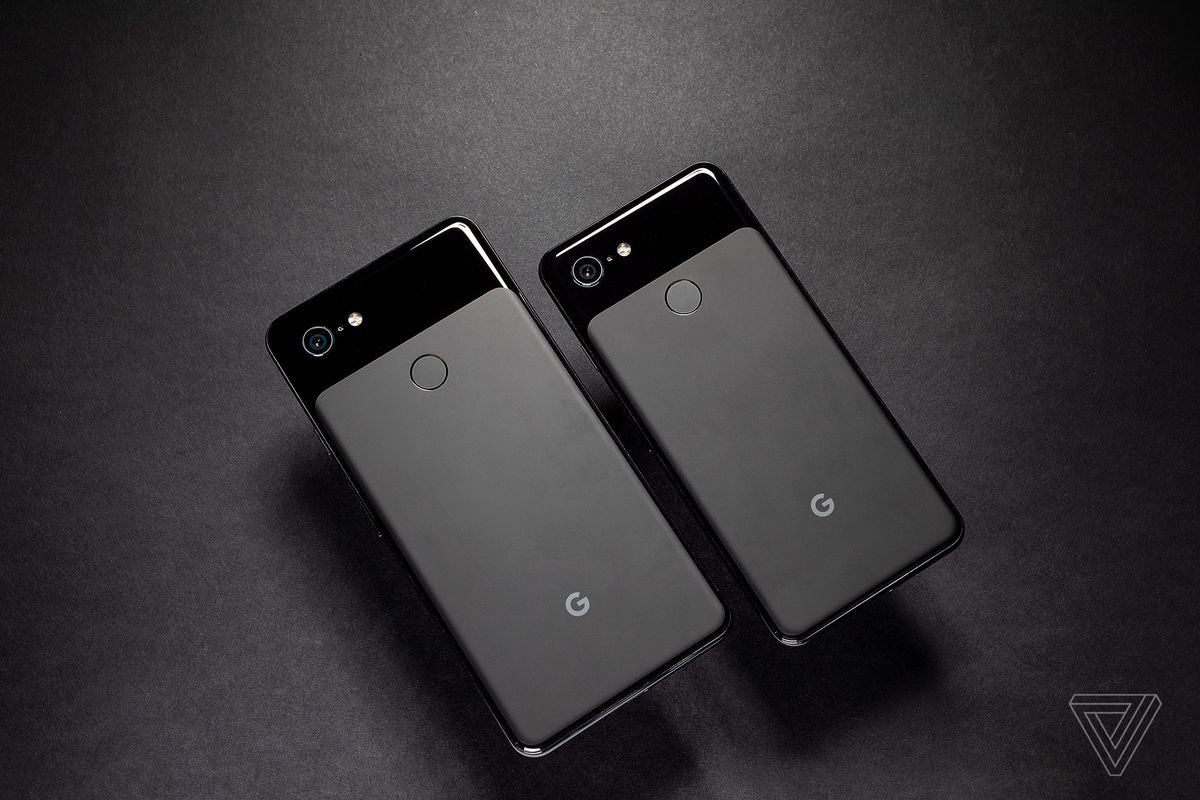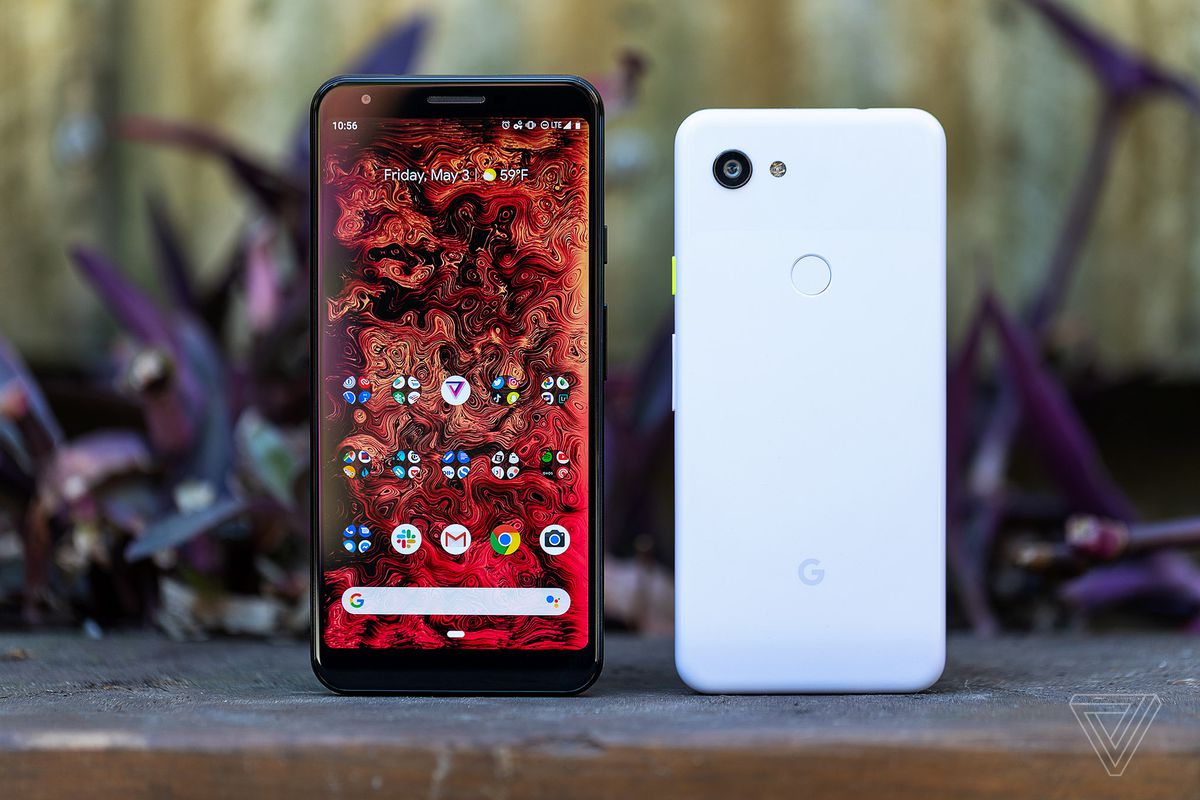Well that was unexpected.
Just one day after we reported on the first Pixel 4 leaks, Google decided to mount a social media hype campaign by literally tweeting out an image of its upcoming Pixel 4. It was a savvy recognition of how the run up to phone launches actually work and an even savvier way to take advantage of that dynamic. It was also, I believe, a statement: The Pixel 4 is going to be unapologetically high end.
That’s just my prediction, but if Google is smart it will prove me right. With the release of the mid-range Pixel 3A smartphone this year, Google has created some space for itself to make something top of the line from both a software and a hardware perspective. That’s something we haven’t seen Google truly try to do yet with the Pixel line, and if it wants to prove it’s serious about making a real business out of selling hardware, it should be a priority.
Let’s back up and unpack all that, because the dynamics around Google’s Pixel line of phones are complicated and unique — and because maybe the tweet that kicked all this off shouldn’t have been unexpected at all.
If you’re not caught up — and who could blame you since this all went down within the last day — here is the story. Act one of the usual script for phone leaks kicked off with renderings of a possible phone and then a metal slug for case makers. We also saw a rumor of a unique feature — gestural control via a radar sensor.
We know how the rest of the script goes. Act two is yet more leaks of possible features. Act three are part leaks and glimpses of actual cases designed for the new phone. Act four is real photos of the new phone and (if you’re Google) some of them falling off a truck and getting “reviewed” before the phone is even released. Act five, the conclusion, is the official announcement. It’s always a tiny letdown, because we already know everything before an executive confidently strides on a stage somewhere to tell you how their latest device is the best one ever.
Google knows this script too. Everybody does. So really, what does the company have to lose by flipping it? We all know Google is going to release a new Pixel phone some time later this year. We all know that it’s going to get leaked six ways to Sunday before hardware chief Rick Osterloh can say peep about it. Why not just tweet out a photo acknowledging the phone is coming and — critically — actually drive the hype cycle instead of getting ground down by it?
Well, I will tell you why not: because it raises expectations. It sets a bar that’s higher than it otherwise would be if you just stayed silent. We are able to look at the big square camera bump and see that there are two camera lenses, a microphone hole, an LED flash, and what looks like a spectral sensor. We’re able to spend the intervening months speculating about just how much Google will be able to do with those parts. Asking what photography or video could possibly be good enough to justify that honking cube sticking out of the back of the phone. Picking apart every detail, acting like it’s basically been fully announced.
Google must really not be worried about hurting Pixel 3 sales right now — probably because they’re really uninspiring. The traditional reason companies don’t pre-announce products is because of the Osborne effect, where people won’t buy your current thing because they’re waiting for the new thing. Fair enough that Google is willing to risk that — but it’s quite a move to make right after it has just started selling Pixel 3 phones at T-Mobile and Sprint stores.
By acknowledging the Pixel 4, Google not only cleverly gives us stuff to speculate about, it’s doing so with a real photo. It will get credit for driving a conversation that would have happened anyway. Most importantly, though, I see this as Google throwing down a gauntlet: speculate away, we got this. It’s a sign of not just confidence, but chutzpah.
Apple is rumored to be making a phone with a nearly identical square camera bump. So it probably tickles Google to know that it got its phone out there before Apple, even though — assuming Google sticks to the script — the next iPhone will come out in September while the Google phone won’t arrive until October.
But that little piece of cleverness doesn’t change the fundamental thing Google chose to do here: raise the stakes for itself. And in so doing, I believe the company needs to rise to the occasion. It needs to make the Pixel 4 something that doesn’t feel dowdy when compared to other flagships like the Galaxy S10, iPhone XS, Huawei P30 Pro (RIP), or even the OnePlus 7 Pro.
I say that not only because Google is engaging in a game of expectations chicken with this Twitter tease, but also because there is a powerful and real business need for it. The Pixel, Pixel 2, and Pixel 3 were all fine phones — and in some cases the best Android phones for most people. But they have never been the most impressive phones from a hardware perspective.

The Pixel 1 felt barely distinguishable from a Nexus phone. The Pixel 2 had those screen issues. The Pixel 3 seems to have persistent and persnickety RAM management issues (and a positively doofy notch on the XL model). All three, though, were not daring from a design or materials perspective.
The Pixel 4 might be — though we only have this one image to go off of. It jettisons the matte + glossy finish. It drops the rear fingerprint sensor. It’s different from before — and again, all signs point to it looking very much like the next iPhone. If your phone looks exactly like the next iPhone, it had damn better feel and perform as good or better than the next iPhone.
Google’s Pixel line now is bifurcated into two price tiers. The 3A is a great value, but it’s much harder to make that case anymore for the Pixel 3. Competing Android phones are faster, have better cameras, nicer screens, and yet still cost less. If Google wants to justify prices over $800 or $1,000 this year, it needs to make compelling hardware to justify that cost.

The Pixel also has a timing problem. It comes out in October, which is off the cycle for when Qualcomm releases its newest and best mobile processors. That means that every Pixel has a top-of-the-line chip when it’s released, but within 5 months there are other Android phones with much better chips and often fresher designs. Design isn’t the only thing that affects or drives sales, but it doesn’t help to having a dated-looking phone when everything else on a carrier shelf looks much cooler. Google itself knows how well this went with the Pixel 3, which it admitted did not sell as well as expected or even as well as the Pixel 2. Making nicer hardware that feels as premium as it costs is an important way to offset that issue.
The Pixel 4 is also going to be the second Pixel phone that Google is producing fully with its “Taiwan team,” aka all the HTC engineers it acqui-hired in January 2018. The first was the Pixel 3A, but that’s midrange phone. Now that all those HTC engineers are fully integrated into Google, the first flagship phone they produce needs to be great.
Last but certainly not least: Google finally started distributing Pixel phones across all US carriers this year (AT&T excluded, but I bet that will change this fall), but only just recently with the Pixel 3A. That means the Pixel 4 will likely be the first flagship phone it’s launching across all carriers in the US, and making something uninspiring will mean getting much less marketing support and worse retail store placement. As shown by the Pixel 3’s sales performance, or lack thereof, how much weight a carrier puts behind a phone can make or break it on the market.
More than anything else, Google needs to stop quietly suggesting that it’s still new at this hardware thing and really ramp it up. After four years, it’s time to start selling in volume, start making phones that are directly competitive with the iPhone on every metric, and stop everybody from wondering if selling hardware is just a side business, just a hobby.
This year, it’s go big or go home time for the Pixel.
https://www.theverge.com/2019/6/12/18662941/google-pixel-4-leak-editorial-premium-high-end-phone

